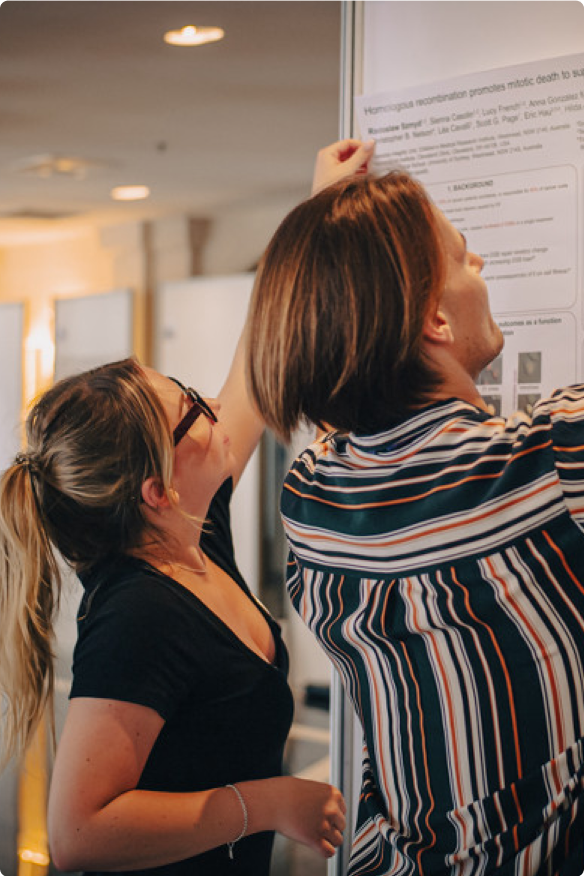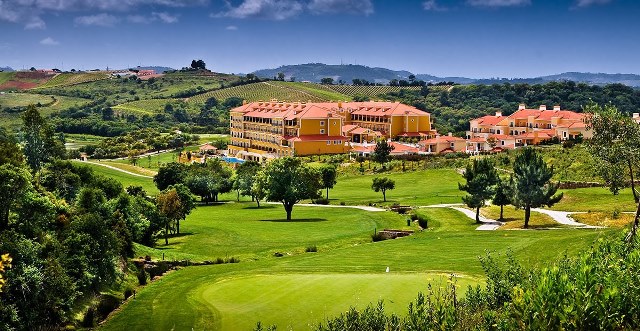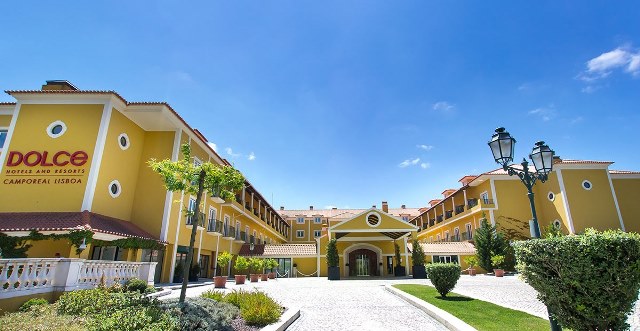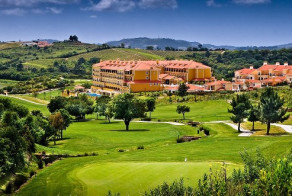COVID-19 Cancellation / Virtual Conference
As the impacts of COVID-19 continue, we have taken the decision to go virtual with the 2nd Fusion Conference on Ubiquitin Function in Health and Disease. The virtual conference will take place from the 17th - 19th November 2021 via our own virtual conference platform, Fusion Online.
If you are interested in joining us for the virtual meeting, please visit the virtual conference website for more information. From here, you can register for the meeting or sign up for updates and our team will keep you updated with forthcoming deadlines and grant opportunities.
- Home
- Past Conferences
- 2nd Fusion Conference on Ubiquitin Function in Health and Disease
Synopsis
We understand that registering for a conference is not essential right now and many researchers will be unable to register for a future conference of interest if their university or lab is temporarily closed. Therefore, you can simply register your interest here to be kept updated with details about this conference without committing to attending and our team will keep in touch with you regarding deadline reminders and grant opportunities. If you are looking to register to take advantage of the earlybird deadline or if you wish to submit an abstract, but you cannot pay the minimum deposit at this time, please contact us for a registration link which will allow you to register without a deposit. We hope these services are helpful during this difficult time.
We have reached a fascinating point in our research on the ubiquitin system’s function, physiology and roles in disease. The attachment of ubiquitin to a protein in the cytosol was first identified as a means to enable degradation of proteins in the cytosol by the proteasome. It was much later that it was discovered that the ubiquitin system fulfils another crucial cellular function: through the dynamics offered by ubiquitination and subsequent deubiquitination it gives a multitude of signalling pathways the required plasticity to initiate but also to limit their signalling output in an exquisitely controlled manner. Whereas certain signalling-related functions employ ubiquitin’s proteasome-targeting function, e.g. the activation of NF-kB following degradation of I-kB, most signalling-related functions of the ubiquitin system are mediated by different types of ubiquitin chains acting as scaffolds for the recruitment of signalling modules to protein complexes which serve as platforms for the triggering of specific signalling complexes.
Rather than discussing mainly structural aspects of the ubiquitin system, this conference is dedicated to the study of functional roles of the ubiquitin system, how it works to ensure normal signal transduction, what are the pathological consequences when it is perturbed and how can we harness our knowledge of the ubiquitin system therapeutically for more efficacious treatment of diseases with high unmet clinical need, including cancer, chronic inflammatory and autoimmune disorders as well as neurodegenerative diseases.
Importantly, this conference aims to become the go-to forum at which the most current and up-to-date therapeutic avenues that emerge from the study of the ubiquitin system will be presented and discussed.
Vishva Dixit says 'The field of ubiquitin biology and applications to clinical medicine is one of the most exciting topics in Biomedicine. With the realization that widely prescribed powerful immunomodulatory drugs (IMIDs) including thalidomide and its analogues lenalidomide and pomalidomide work by engaging ubiquitin mediated degradation of critical targets, the field has exploded. A PROTAC strategy (Proteolysis targeting chimera) is now underway at all major Biopharma enterprises to extend the lessons from the IMID field to specifically target unwanted proteins. The impact of the field is far reaching. Indeed, the Nobel Prize this year was given to researchers who worked out how hypoxia engages the ubiquitin system to regulate oxygen availability. The future for the field has never been brighter. Clear your calendars and come join what should be a most exciting conference. It will focus on the myriad ways ubiquitin controls the signaling circuitry of life. If the regulation exerted by ubiquitin goes awry the consequences are devastating: it promulgates the pathology associated with inflammatory disease states, cancer and neurodegeneration.'
Student Offer
Take advantage of this fantastic opportunity for students! Fully paying academics can bring a student for only €820. Unfortunately, Postdocs are not eligible. Both registration packages include; accommodation for the 31 October and 01, 02 November 2021 (on a shared basis for students) and a food and beverage package for the conference period. Once registered, please contact Laura Trundle to obtain a special registration link for your student.
Grant Opportunity
We have four €500 registration grants available for postdocs and students. Please submit an abstract for oral or poster consideration via email to Laura Trundle along with a short message outlining why you would benefit from receiving one of our grants. The deadline for this grant application is Monday 26th April 2021.
Confirmed Speakers
Alessandro Annibaldi (Center for Molecular Medicine Cologne)
MECHANISMS OF cFLIP-MEDIATED REGULATION OF CELL DEATH
Eric Baehrecke (UMass Medical School)
A NOVEL RELATIONSHIP BETWEEN UBIQUITIN, MITOCHONDRIA AND AUTOPHAGY
Petra Beli (Institute of Molecular Biology)
UBIQUITIN SIGNALING IN PROTEIN QUALITY CONTROL
Nicolas Bidere (University of Nantes)
CYLD REGULATES CENTRIOLAR SATELLITES PROTEOSTASIS BY COUNTERACTING THE E3 LIGASE MIB1
Anja Bremm (Goethe University Frankfurt)
Tim Clausen (IMP)
THERE IS A MEG IN UBIQUITIN WATERS
Heran Darwin (NYU Langone Health)
PROTEASOMAL REGULATION OF MYCOBACTERIUM TUBERCULOSIS PATHOGENESIS
Anne Dejean (Institut Pasteur)
ROLE OF SUMO ON CHROMATIN
Ivan Dikic (Goethe University Frankfurt)
UBIQUITIN SYSTEM IN BACTERIAL INFECTIONS
Wayne Fairbrother (Genentech)
Brian Ferguson (University of Cambridge)
ANTI-VIRAL FUNCTIONS OF LINEAR UBIQUITIN CHAINS
Adolfo Garcia-Sastre (Icahn School of Medicine at Mount Sinai)
REGULATION OF PATHOGEN SENSING BY TRIM UBIQUITIN LIGASES
Thorsten Hoppe (CECAD)
ORGANISMAL REGULATION OF UBIQUITIN-MEDIATED QUALITY CONTROL
Philipp Jost (TU Munich)
MUCOSAL IMMUNITY BY THE E3 LIGASE XIAP
Rachel Klevit (University of Washington)
BRCA1/BARD1, TWENTY YEARS LATER
Sonja Lorenz (Max Planck Institute for Biophysical Chemistry)
STRUCTURAL MECHANISMS REGULATING HECT-TYPE UBIQUITIN LIGASES
Sascha Martens (Max Perutz Labs, Vienna)
THE ROLE OF UBIQUITIN AND UBIQUITIN-LIKE CONJUGATION SYSTEMS IN SELECTIVE AUTOPHAGY
Pascal Meier (ICR London)
UBIQUITIN-MEDIATED REGULATION OF NECROPTOSIS
Kim Newton (Genentech)
REGULATION OF CELL DEATH AND INFLAMMATION BY DUBs OTULIN AND CYLD
Michele Pagano (NYU)
UNCOVERING THE POWER OF PROTEIN DEGRADATION: MECHANISMS TO THERAPEUTIC STRATEGIES
Nieves Peltzer (University of Cologne)
LUBAC AT THE CROSSROAD OF CELL DEATH AND INFLAMMATION
Simona Polo (IFOM)
RIBONUCLEOPROTEIN GRANULES IN NEURONS AND OVARIES: DYNAMIC SENSORS MODULATED BY UBIQUITIN
Marc Schmidt-Supprian (TU Munich)
REGULATING B CELL RESPONSES THROUGH PROTEIN LEVEL CONTROL OF NF-kappaB FAMILIY MEMBERS
Michal Sharon (Weizmann Institute of Science)
SPECIFIC REGULATION OF THE 20S PROTEASOME COMPLEX
John Silke (The Walter and Eliza Hall Institute of Medical Research)
UBIQUITIN AND DEAD BODIES, A DEGRADING BUSINESS
Adrian Ting (Mayo Clinic)
UBIQUITIN, CELL DEATH AND TRANSPLANTATION
Sylvie Urbe (University of Liverpool)
DEUBIQUITINASES (DUBS): DRUGGABLE REGULATORS OF PROTEIN AND ORGANELLE HOMEOSTASIS
Domagoj Vucic (Genentech)
UBIQUITINATION REGULATES INFLAMMATORY SIGNALING BY RIP KINASES
Georg Winter (CeMM Research Center for Molecular Medicine)
TARGETED PROTEIN DEGRADATION: CHEMICAL REWIRING OF UBIQUITIN LIGASES
Target Audience
This conference will appeal to researchers who are particularly interested in the diverse functions of the ubiquitin system, rather than structural aspects of it, as well the way this system is involved in normal physiology in a whole range of pathologies that have been shown to be associated with abnormal ubiquitin signalling. Naturally this target profile will bring together researchers from both academia and the biotech/pharma industries who want to be on top of the most recent developments in this fascinating and fast developing field.
Learning Objectives
- To be on top of the field with regards to the diverse functions of the ubiquitin system
- To comprehend how the ubiquitin system affects health and disease
- To understand the therapeutic opportunities provided through our increased knowledge of ubiquitin’s functions
- To learn which ubiquitin-related drug candidates are presently in preclinical and clinical development and in which clinical entities they are tested
- To develop a sense for fruitful future research directions and therapeutic opportunities offered by the study of ubiquitin function
Confirmed Speakers
Chairs
Programme
Although the programme has not yet been released, we are able to confirm that the conference should begin no earlier than 14:00 with opening comments on 31st October 2021. The conference will conclude no later than 12:30 on 03rd November 2021.
Supported by
Venue & Location
Dolce CampoReal Lisboa
Located in Torres Vedras, just a 30-minute drive from Lisbon, Dolce CampoReal Lisboa offers unique tranquillity, as a result of its idyllic environment. The hotel offers stunning views over the golf course, vineyards and the extraordinary landscape of Socorro and Archeira Mountains.
The hotel has three restaurants to provide a variety of gastronomic choices, and two bars including one beside the outdoor pool.
Hotel Facilities
- Complimentary Wi-Fi in guest rooms and throughout hotel and conference areas
- Indoor heated swimming pool
- Outdoor swimming pool with Jacuzzi
- Spa
- Gym
- Golf course
- 2 Tennis courts
General Information
Venue Rating
★ ★ ★ ★ ★
Currency
Euro (EUR)
Address
R. do Campo (Campo Real ) 2565-770 Portugal
Nearest Airport
Lisbon Portela Airport
Location
The Dolce CampoReal Lisboa is nestled between the vineyards and the extraordinary landscape of the Socorro and Archeira Mountains.
Lisbon is only a short 30-minute drive away. The Portuguese capital is constantly recognised as one of the greatest cities in the world, a claim confirmed by the “Lonely Planet Guides", who named Lisbon one of the world’s top 10 cities. Lisbon in one of the world’s oldest cities, predating the likes of London, Rome and Paris by hundreds of years. Hillsides covered in tumbledown houses and a mix of baroque and neoclassical buildings, including cathedrals and palaces, make up Lisbon’s skyline. The city is a combination of old and new, with beautiful modern buildings constructed near renovated historical landmarks and ruins.
If you are interested in this meeting but not yet ready to register, you can sign up for updates here and our team will keep you updated regarding deadline reminders and grant opportunities relating to this meeting only.
If you're interested in sponsoring this conference please contact us.
Conference Manager

Laura Trundle


Need some help? Chat to the Fusion team today
As a family run business, our dedication runs deep. We’re committed to each other and, even more so, to every attendee’s experience, delivering a level of care and passion that’s truly unmatched.

















